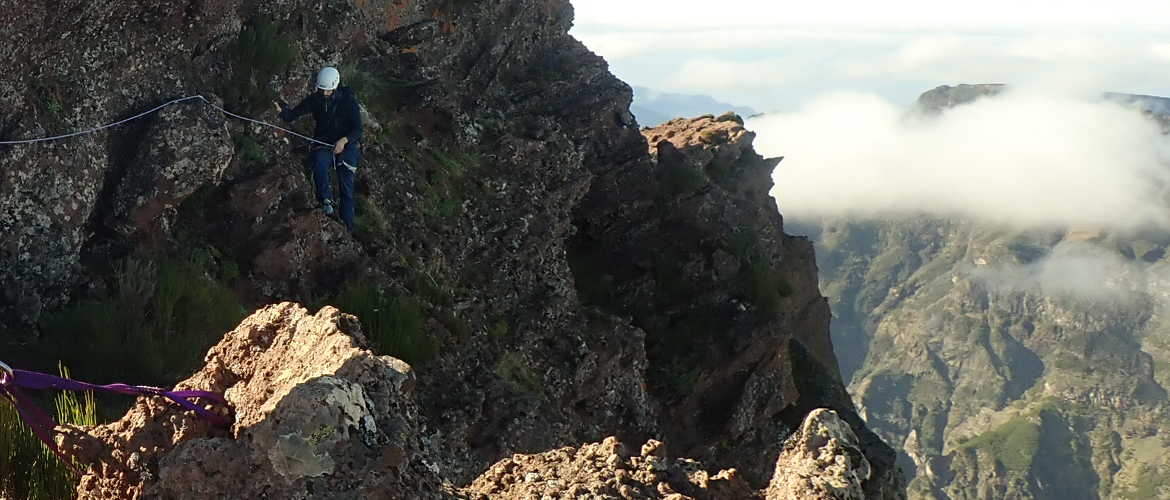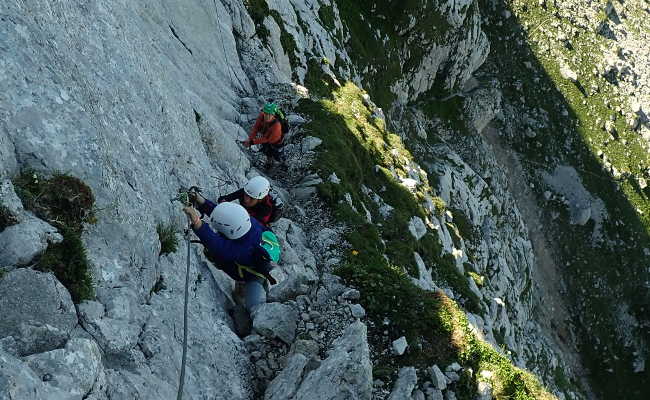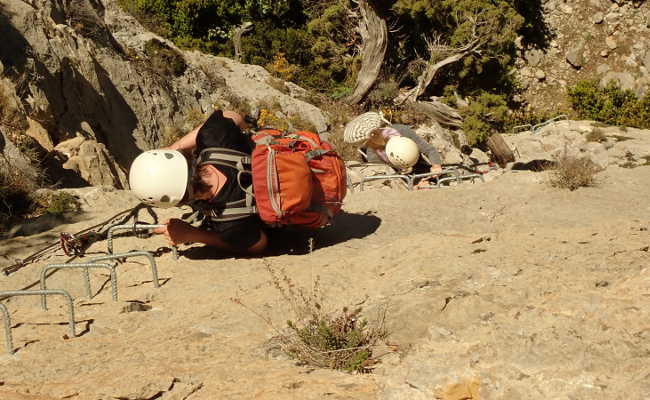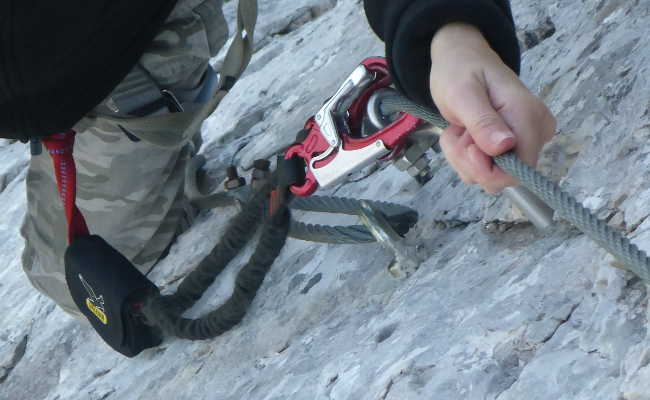
Services included with us:
Mountaineering helmet, climbing harness and via ferrata set
Descender for the returng
All the necessary ropes
Trilingual climbing instructor with 20 years of experience
Professional instruction in material and technique
Transfer from the active base to the via ferrata and back
Abseiling training included (Pico Cidrao only)
Via Ferrata is now also possible in Madeira,
Portugal. Casa Vento has developed two different adventures for you:
The alpine ascent to the spectacular
summit of Pico Cidrao. It is located near Pico Arieiro and the overall package of an approach
via a narrow ridge edge, a short third degree climbing route and two exposed ledges promises
an impressive day. The summit feeling and the view are incomparable, the way back leads
along a long-forgotten route, a short abseiling is include.
We set the protection anew for each tour, we use dynamic climbing ropes, so basically we do not climb
a via ferrata, but a so-called via corda.
As an alternative to the via ferrata technique, we can also conquer the summit as an easy
multi-pitch climbing tour with maximum difficulty in the third French degree.
The ferrata and hiking circuit over the
Ponta do Clerigo in Santana, which intoxicates with incredible
views and includes a real via ferrata directly above the sea.
The approach is just as much an experience as exploring what is probably the northernmost peak
on the island. With good visibility, we can see Porto Santo on the horizon. The relatively short,
real via ferrata takes us almost to the water of the sometimes roaring Atlantic.
I will teach you all the necessary techniques during the day: material knowledge, self-belaying,
abseiling, third-party belaying.
The necessary material is of course included: helmet, climbing harness, via ferrata set,
abseiling device, ropes and carabiners.
I, Michael, am your partner on the via ferrata and speak German, English and French.
I offer you via ferratas in various destinations in Madeira, for example Funchal and
Santana.
A via ferrata (iron path) is a climbing tour that you undertake with self belay through a rock face.
A distinction is made between sport climbing and alpine climbing.
The paths are secured by a continuous steel cable, which is anchored in the rock
every few meters. Steel step and handholds are installed in difficult passages.
Via ferrata has developed rapidly over the past decade and a lot of time and money
has been invested in researching and developing the corresponding equipment. Special
sets are offered for light climbers and the fall protectors work in changing temperatures
and even after a few years of use within the framework of the relevant standards and
reduce the risk of injury.

Alpine trails are often old paths up the mountains that have been secured for various reasons. Often they are of military origin and in most cases they have been restored for touristic use. The goal is well-known peaks or historical passages. Steel step are only installed where they are urgently needed, rather the paths follow natural ledges or stepped terrain. The levels of difficulty are rather easy, but many of the climbs are extremely exposed. Natural dangers such as falling rocks should not be underestimated.

A Sports via ferrata is built into mostly insignificant rock faces for purely tourist purposes and are spiced with many spectacular elements such as bridges, ladders, nets or even zip lines. Due to the high construction costs, an entry fee is usually demanded. In return, these routes are always well maintained. Ideally, the difficulties increase in the course of the climb, and there are often emergency exits in front of key passages. An ascent is tied to a minimum size, so that it is ensured that each user can always secure himself alone.

The elementary safety element is the via ferrata set. It is usually attached to a commercially available climbing harness with an anchor hitch and has two lanyards, each with a carabiner, which locks automatically and is designed for easy operation. A shock absorber is sewn between the arms and the fastening loop. It is usually hidden in a small pocket and consists of a ribbon, sewn in a wave shape. In the event of a shock load, the seam tears open piece by piece and thus destroys the fall energy.
We'll go climbing with you on these routes, depending on the weather and
your level of knowledge, we'll choose the right route.
Further tours are being planned.